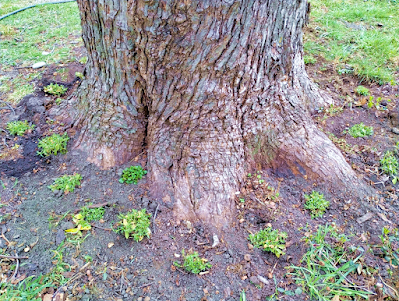Hemp Intelligence
Farming 10,000 acres of hemp will provide as much paper, building materials, and pulp as 41,000 acres of forest.
- US Dept. of Agriculture, USDA Bulletin 404
Presidents Washington and Jefferson both grew hemp. Americans were legally bound to grow hemp during the Colonial Era and Early Republic. The federal government subsidized hemp during the Second World War and U.S. farmers grew about a million acres of hemp as part of that program.
Hemp seed is nutritious and contains more essential fatty acids than any other source, is second only to soybeans in complete protein (but is more digestible by humans), is high in B-vitamins, and is a good source of dietary fiber. Hemp seed is not psychoactive and cannot be used as a drug.
The bark of the hemp stalk contains bast fibers, which are among the Earth's longest natural soft fibers and are also rich in cellulose. The cellulose and hemi-cellulose in its inner woody core are called hurds. Hemp stalk is not psychoactive. Hemp fiber is longer, stronger, more absorbent and more insulative than cotton fiber.
According to the Department of Energy, hemp as a biomass fuel producer requires the least specialized growing and processing procedures of all hemp products. The hydrocarbons in hemp can be processed into a wide range of biomass energy sources, from fuel pellets to liquid fuels and gas. Development of bio-fuels could significantly reduce our consumption of fossil fuels and nuclear power.
Hemp produces more pulp per acre than timber on a sustainable basis, and can be used for every quality of paper. Hemp paper manufacturing can reduce wastewater contamination. Hemp's low lignin content reduces the need for acids used in pulping, and its creamy color lends itself to environmentally-friendly bleaching instead of harsh chlorine compounds. Less bleaching results in less dioxin and fewer chemical by-products.
Hemp fiber paper resists decomposition, and does not yellow with age when an acid-free process is used. Hemp paper more than 1,500 years old has been found. Hemp paper can also be recycled more times than wood-based paper.
The U.S. is the only industrialized nation in the world that does not recognize the value of industrial hemp and permit its production.
- US Dept. of Agriculture, USDA Bulletin 404
Presidents Washington and Jefferson both grew hemp. Americans were legally bound to grow hemp during the Colonial Era and Early Republic. The federal government subsidized hemp during the Second World War and U.S. farmers grew about a million acres of hemp as part of that program.
Hemp seed is nutritious and contains more essential fatty acids than any other source, is second only to soybeans in complete protein (but is more digestible by humans), is high in B-vitamins, and is a good source of dietary fiber. Hemp seed is not psychoactive and cannot be used as a drug.
The bark of the hemp stalk contains bast fibers, which are among the Earth's longest natural soft fibers and are also rich in cellulose. The cellulose and hemi-cellulose in its inner woody core are called hurds. Hemp stalk is not psychoactive. Hemp fiber is longer, stronger, more absorbent and more insulative than cotton fiber.
According to the Department of Energy, hemp as a biomass fuel producer requires the least specialized growing and processing procedures of all hemp products. The hydrocarbons in hemp can be processed into a wide range of biomass energy sources, from fuel pellets to liquid fuels and gas. Development of bio-fuels could significantly reduce our consumption of fossil fuels and nuclear power.
Hemp produces more pulp per acre than timber on a sustainable basis, and can be used for every quality of paper. Hemp paper manufacturing can reduce wastewater contamination. Hemp's low lignin content reduces the need for acids used in pulping, and its creamy color lends itself to environmentally-friendly bleaching instead of harsh chlorine compounds. Less bleaching results in less dioxin and fewer chemical by-products.
Hemp fiber paper resists decomposition, and does not yellow with age when an acid-free process is used. Hemp paper more than 1,500 years old has been found. Hemp paper can also be recycled more times than wood-based paper.
The U.S. is the only industrialized nation in the world that does not recognize the value of industrial hemp and permit its production.












Hemp BioPlastics!!! Free the Plants! Thank you for this.
ReplyDeleteFascinating! I want to learn more.
ReplyDelete